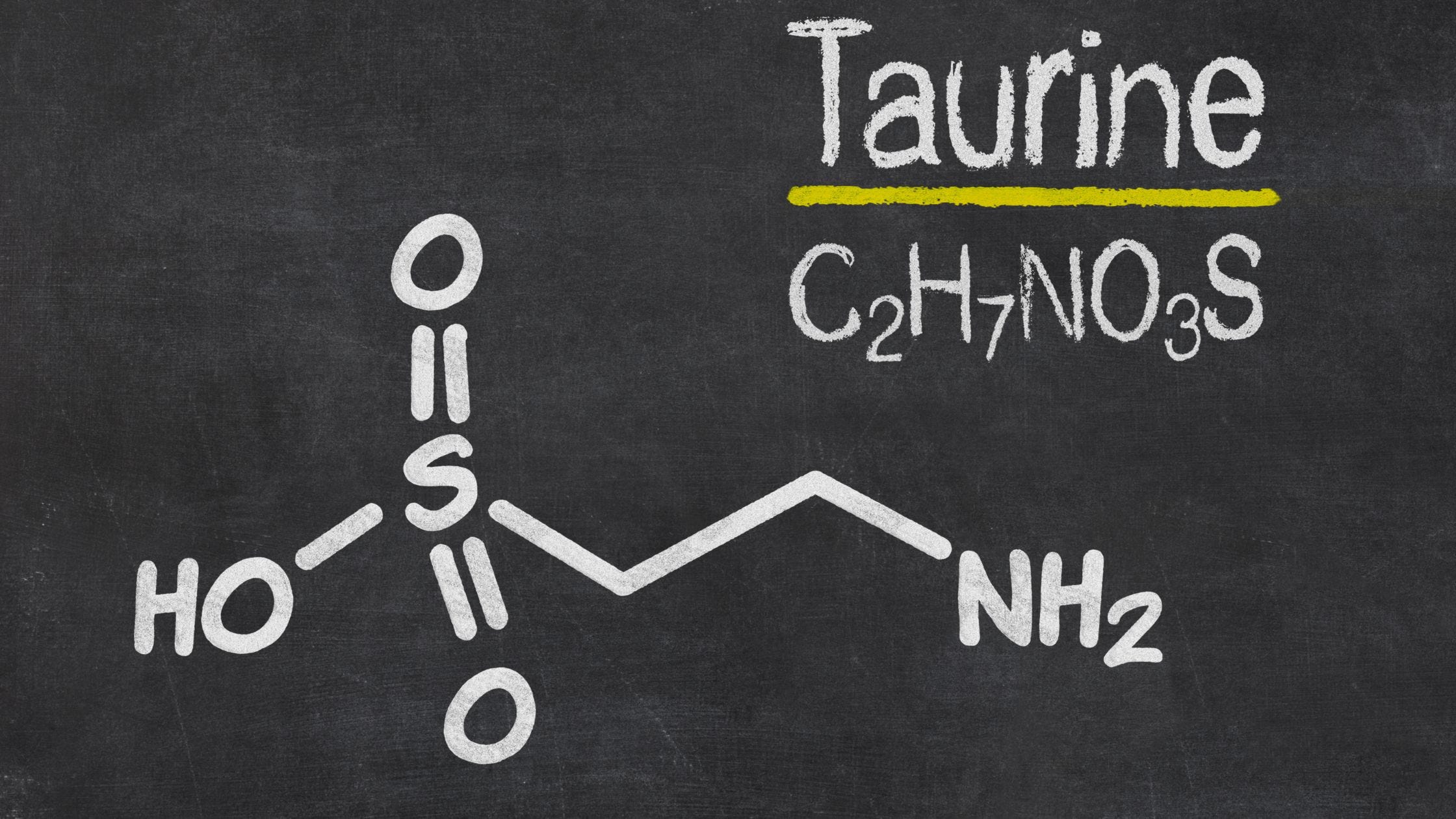
The Vital Role of Taurine in Supporting a Healthy Aging
Aging gracefully is a goal for many, and with the proper nutrients, it’s possible to maintain vitality, energy, and overall wellness well into later years. Most abundant in meat, fish, and dairy products, taurine is a sulfur-containing amino acid that plays a critical role in a wide variety of bodily functions, including bile salt formation, osmoregulation, antioxidant-like activity, detoxification of xenobiotics, cell membrane stabilization, and more.1
While the body produces taurine, levels may decline up to 80% with age, leading to potential interest in supplementation to support overall well-being and healthy aging.2 An antioxidant-like nutrient, taurine helps neutralize free radicals, thereby supporting the body’s natural defenses against oxidative stress. This antioxidant activity is particularly beneficial for healthy metabolism, efficient detoxification, and overall cellular health, including heart and brain.
Why Taurine is Crucial for Healthy Aging
Taurine is naturally found in the body and involves several vital processes. However, its levels can decrease over time due to poor diet, stress, certain medications, or medical conditions. Exciting research indicates that taurine supplementation is associated with improvements in strength, coordination, and memory and contributes to maintaining healthy cellular and mitochondrial function.2 These effects offer broad support for healthy aging across multiple systems.
Taurine is essential for protein translation and plays a critical role as a component of mitochondrial tRNA. By reducing the production of reactive oxygen species (ROS) and enhancing superoxide dismutase (SOD) activity, taurine helps minimize mitochondrial dysfunction. This leads to more efficient energy (ATP) production and decreases harmful byproducts like superoxide, which can otherwise damage cells, ultimately supporting healthier aging.3
Supporting detoxification processes also promotes healthy aging. In a randomized, double-blind, control trial, 24 female participants aged 55-70 clinical study, those in the experimental group supplemented with three 500 mg taurine pills daily (1.5g/day) had nearly a 20% increase in SOD, a potent antioxidant enzyme, compared to a 3.5% decline in the control group, implying that taurine may regulate oxidative stress associated with aging processes.3
Taurine Keeps the Ticker Tuned
Known for its role in maintaining cardiovascular health, taurine has been used clinically to support heart muscle function and blood vessel health and to help maintain healthy blood pressure levels within the normal range. Clinical evidence suggests that low levels of dietary taurine may be problematic for maintaining healthy blood pressure as we age.4 Taurine supports proper heart muscle function and helps regulate calcium levels, which is critical for maintaining a healthy heart rhythm. It also contributes to healthy blood pressure levels already within the normal range by promoting balanced vascular function.
For practitioners, taurine can be an excellent addition to heart health protocols, especially when combined with supportive botanicals like hawthorn berry (Crataegus spp.) and prickly pad nopal (Opuntia ficus-indica). Health-conscious consumers, particularly vegetarians and vegans, may benefit from supplementing with taurine and targeted synergistic botanicals to help maintain nourishing, long-term cardiovascular health as part of their daily wellness routine.
Taurine’s Tonic Effect on Mind and Mood
Taurine may also help maintain mental clarity and support healthy sleep patterns, which are important as we age. Taurine is involved in the regulation of neurotransmitters and supports a calm, balanced mood via the activation of GABA receptors. Taurine supports cognitive function and plays a neuroprotective role by supporting the body’s natural inflammation modulation processes. Research indicates taurine may be especially useful in supporting recovery after traumatic brain injury and regulation of amyloid-β plaques that may occasionally occur. 5,6 For practitioners and consumers alike, taurine's neuroprotective properties make it a natural ally in supporting brain health.
Taurine Tackles Metabolic Imbalance
Taurine supports healthy glucose metabolism, which can help maintain balanced blood sugar levels within the normal range. In studies on animals and humans, taurine deficiency is associated with severe complications of insulin-dependent metabolic disorders such as insulin resistance.1
Taurine supports healthy glucose metabolism by moderating the signaling pathways of beta cell insulin secretion, helping to maintain balanced blood sugar levels within the normal range.5 This makes it an essential nutrient for metabolic health, especially as metabolic concerns become more common with age. By enhancing glucose metabolism, taurine promotes sustained energy levels throughout the day.
Taurine Helps Tame Toxins
One of taurine's primary functions is aiding the liver by conjugating cholesterol into bile acids, essential for fat digestion and removing toxins. This process helps maintain liver health and supports the body's detoxification pathways by promoting the efficient breakdown and elimination of fat-soluble substances, playing a vital role in the body’s natural detoxification pathways.
The sulfur in taurine is essential in producing bile salts in the liver, which are essential for fat digestion and eliminating waste products. These include toxins and xenobiotics—the pollutants, chemicals, or synthetic compounds that enter the body from the environment or through food. With the help of lipophilic bile salts, the liver works to metabolize xenobiotics, breaking them down and eliminating them through bile.
This process supports the liver's natural detoxification pathways, helping to metabolize and remove foreign substances more effectively. By supporting healthy fat metabolism and helping the body manage energy more efficiently, taurine may help maintain normal liver function.
Taurine’s Tips: Considerations for Safe Use
While taurine supplementation is generally well-tolerated, there are some situations when caution should be exercised. These include individuals with severe kidney disease, as the body's ability to process and excrete amino acids may be impaired. Taurine may interact with standard blood pressure medications as well as medications for diabetes or hypoglycemia. Due to limited research on the effects of taurine supplementation during pregnancy or breastfeeding, it’s best to consult a healthcare provider before use.
Taurine – Trustworthy for the Long Haul
Taurine supplementation offers extensive benefits for integrative practitioners and health-conscious individuals, supporting cardiovascular health, cognitive function, metabolic balance, and detoxification—making it an essential nutrient for promoting healthy aging. Typically well-tolerated, taurine is safe for long-term use. However, individuals with kidney conditions or those taking medications for blood pressure or blood sugar should consult a healthcare provider before starting. Adult dosages generally range from 500 mg to 2,000 mg per day, in divided doses, depending on individual needs.1
Integrating taurine into daily routines or patient protocols provides a natural, effective way to maintain vitality and overall well-being throughout the aging process. Practitioners can tailor taurine supplementation to meet the specific needs of those seeking nutrient support for healthy aging. With a growing understanding of taurine’s benefits, health-conscious consumers are now better equipped to make informed decisions for their long-term wellness.
References
- Taurine Monograph. Altern Med Rev. 2001;6(1):78-88. Available at: https://altmedrev.com/wp-content/uploads/2019/02/v6-1-78.pdf. Accessed September 10, 2024.
- McGaunn J, Baur JA. Taurine linked with healthy aging. Science. 2023;380(6649):1010-1011. doi:10.1126/science.adi3025. Available at: https://pubmed.ncbi.nlm.nih.gov/37289872/. Accessed on 9-10-2024.
- Sheikh A, Iqbal M. Taurine as a potential anti-ageing therapy: the key to reversing the ageing process? Short communication. Ann Med Surg (Lond). 2023;85(7):3759-3760. Published 2023 May 20. doi:10.1097/MS9.0000000000000826 . Available at: https://pubmed.ncbi.nlm.nih.gov/37427216/. Accessed on 9/10/2024
- Santulli G, Kansakar U, Varzideh F, Mone P, Jankauskas SS, Lombardi A. Functional Role of Taurine in Aging and Cardiovascular Health: An Updated Overview. Nutrients. 2023;15(19):4236. Published 2023 Sep 30. doi:10.3390/nu15194236. Available at: https://pubmed.ncbi.nlm.nih.gov/37836520/. Accessed on 9/16/24.
- Rafiee Z, García-Serrano AM, Duarte JMN. Taurine Supplementation as a Neuroprotective Strategy upon Brain Dysfunction in Metabolic Syndrome and Diabetes. Nutrients. 2022;14(6):1292. Published 2022 Mar 18. doi:10.3390/nu14061292. Available at: https://www.ncbi.nlm.nih.gov/pmc/articles/PMC8952284/. Accessed on 9/10/24.
- Bae M, Ahmed K, Yim JE. Beneficial Effects of Taurine on Metabolic Parameters in Animals and Humans. J Obes Metab Syndr. 2022;31(2):134-146. doi:10.7570/jomes21088. Available at: https://www.ncbi.nlm.nih.gov/pmc/articles/PMC9284575/. Accessed on 9/10/24
- Qi Song, Junxia Guo, Yanzhen Zhang, Wen Chen. The beneficial effects of taurine in alleviating fatty liver disease, Journal of Functional Foods, Volume 77, 2021,104351,ISSN 1756-4646, https://doi.org/10.1016/j.jff.2020.104351. Accessed on 9/16/24
Jenny Perez is an herbal educator, researcher, and writer who has been immersed in nutrition and botanical medicine for more than twenty years. She has created curriculum, content, and educational materials for Quantum Nutrition Labs, Premier Research Labs, the American Botanical Council, and Bastyr University’s Botanical Medicine Department, where she was Adjunct Faculty, Herb Garden Manager, and Director of the Holistic Landscape Design certificate program.









